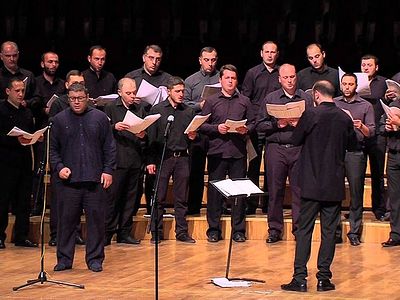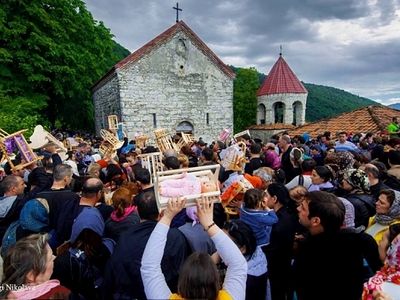Source: The American Conservative
October 10, 2016
That is an Georgian Orthodox priest, Father Seraphim, and his choir chanting Psalm 53 in Aramaic, when Pope Francis visited the cathedral in Tbilisi earlier this month. He is of Assyrian descent; there is an Assyrian population in Georgia. This chant is astonishingly beautiful. As you listen to it, keep in mind the text of Psalm 53. These are the words they are chanting in Aramaic:
The fool hath said in his heart, There is no God. Corrupt are they, and have done abominable iniquity: there is none that doeth good.
God looked down from heaven upon the children of men, to see if there were any that did understand, that did seek God.
Every one of them is gone back: they are altogether become filthy; there is none that doeth good, no, not one.
Have the workers of iniquity no knowledge? who eat up my people as they eat bread: they have not called upon God.
There were they in great fear, where no fear was: for God hath scattered the bones of him that encampeth against thee: thou hast put them to shame, because God hath despised them.
Oh that the salvation of Israel were come out of Zion! When God bringeth back the captivity of his people, Jacob shall rejoice, and Israel shall be glad.
Here, in a vastly more humble setting, is Father Seraphim and a smaller choir singing the Trisagion hymn in Aramaic. The words mean: “Holy God, Holy Mighty, Holy Immortal, have mercy on us.”




